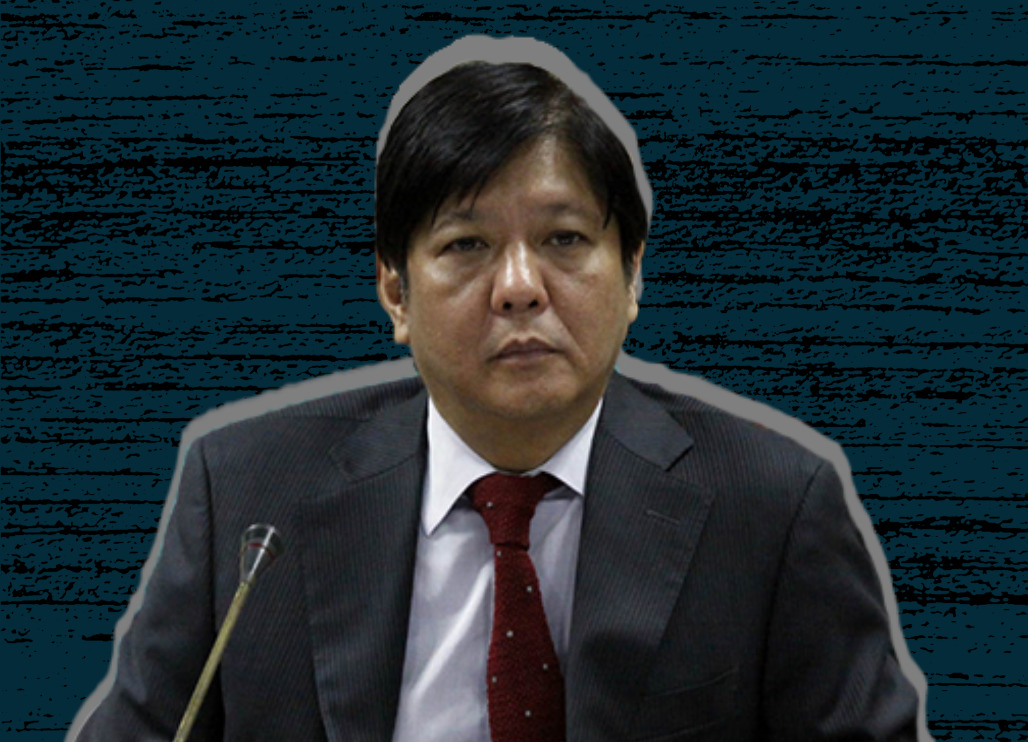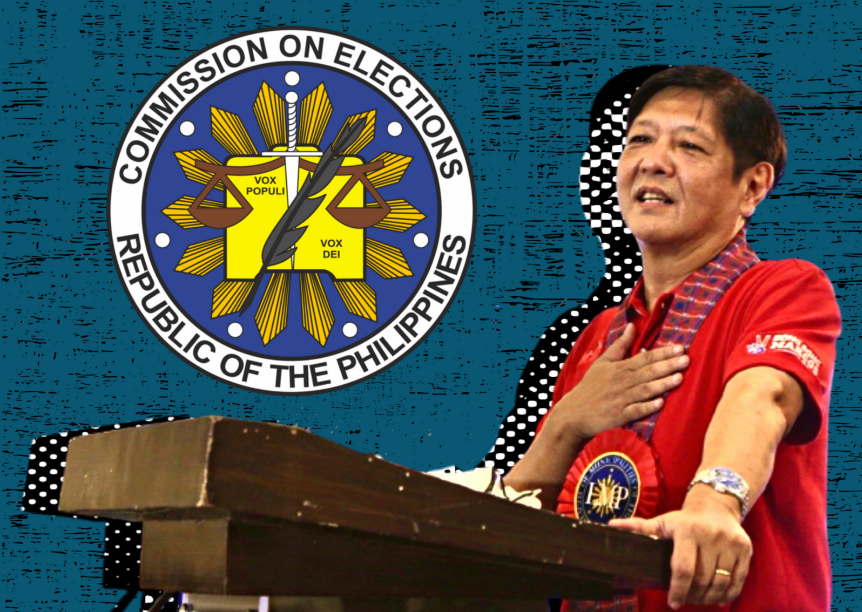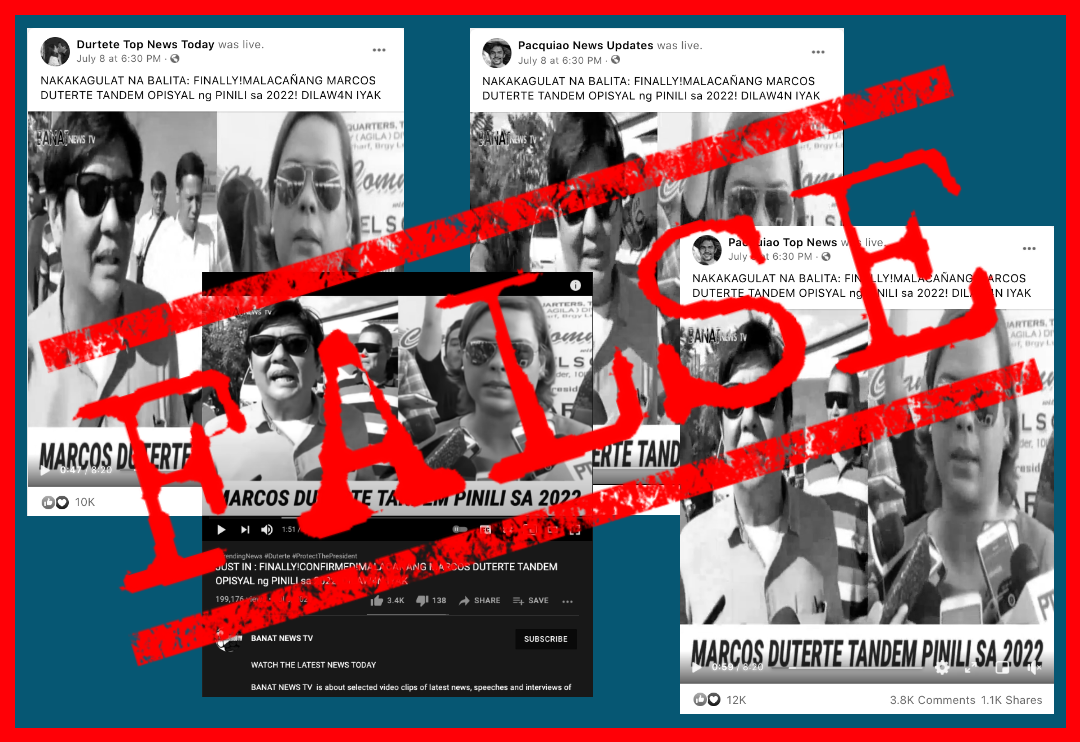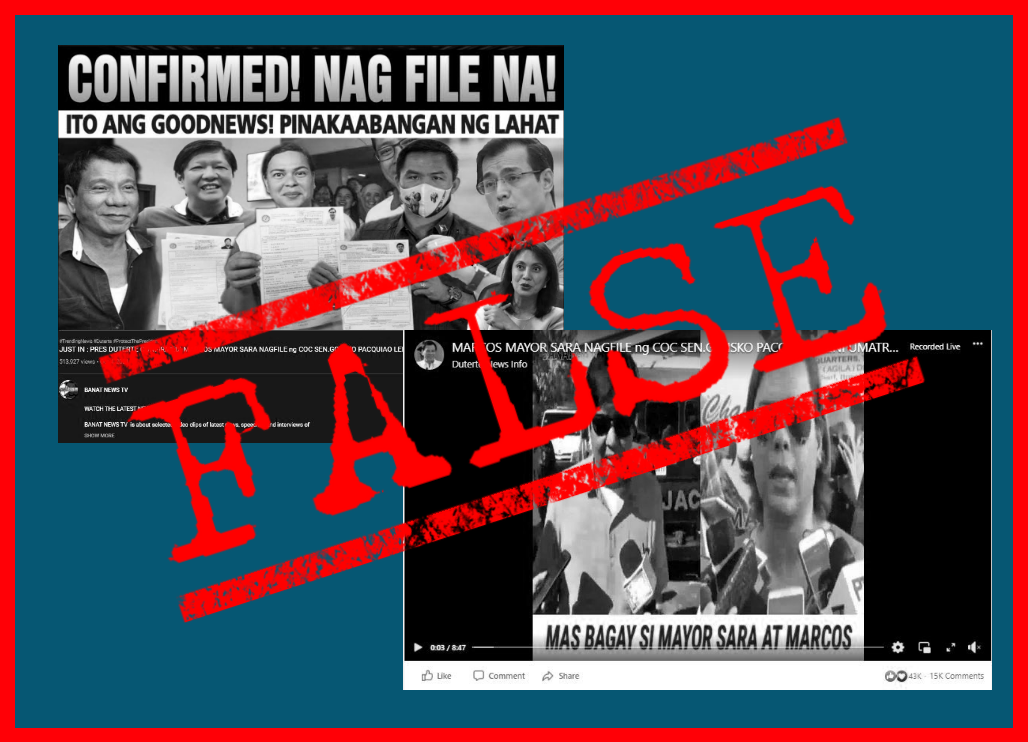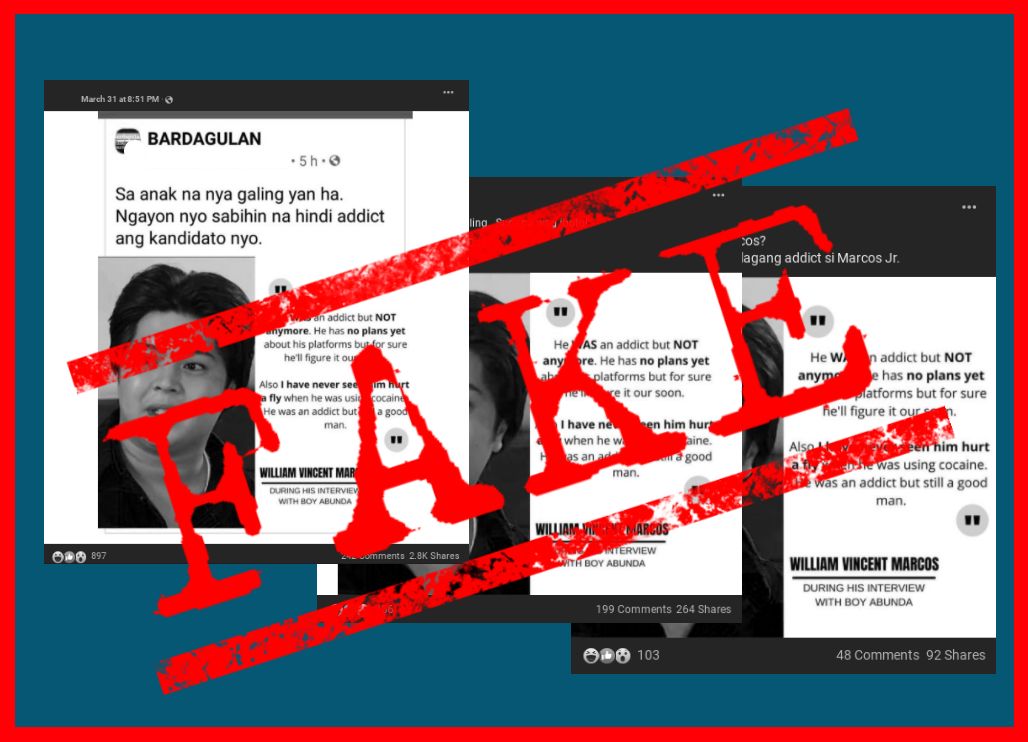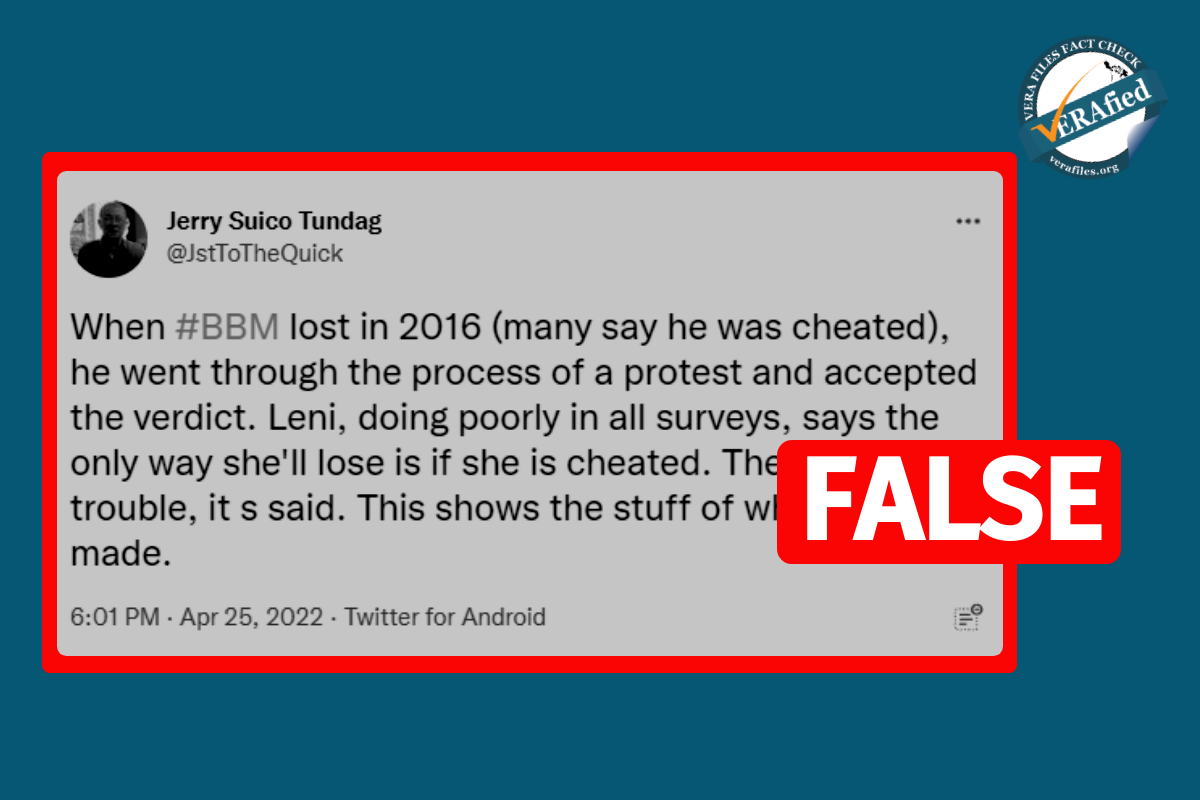Presidential aspirant and former senator Ferdinand “Bongbong” Marcos Jr. may still be barred from running in next year’s polls.
Retired Supreme Court (SC) senior associate justice Antonio Carpio raised the possibility in his Oct. 28 Inquirer.net column. If Marcos Jr.’s prior conviction of tax evasion is deemed a crime of moral turpitude, the Commission on Elections (Comelec) would have basis to disqualify him. If the SC affirms the decision to disqualify, it would be the end of the line for the presidential aspirant.
In a message to VERA Files, Carpio, however, said a complaint has to be filed before the Comelec. “The SC has the final say,” he added.
Marcos Jr., son of late dictator Ferdinand Marcos, was convicted on July 27, 1995 on four charges of violating Sec. 45 of the 1977 National Internal Revenue Code (NIRC) for failing to file income tax returns from 1982 to 1985. In one of the cases, the Quezon City Regional Trial Court sentenced him to three years in prison with a fine of P30,000.
Sec. 12 of the Omnibus Election Code states that anyone who “has been sentenced by final judgment” for any offense with a penalty of more than 18 months “or for a crime involving moral turpitude, shall be disqualified to be a candidate and to hold any office.”
“While the failure to file a tax return for one year may not evince an intent to evade payment of income taxes, the repeated failure to file income tax returns for several years can evince an intent to evade such payment, amounting to moral turpitude,” Carpio said.
Carpio is chairman of 1SAMBAYAN Coalition, which nominated Vice President Leni Robredo as its presidential bet.
On Oct. 30, 1997, Marcos Jr. appealed the RTC decision to the Court of Appeals (CA), which later ruled that he was “guilty beyond reasonable doubt” for violation of Sec. 45. The CA acquitted him on four other charges under Sec. 50 for non-payment of deficiency taxes.
The presidential aspirant was also ordered to “pay the BIR the deficiency income taxes due with interest at the legal rate until fully paid.”
Carpio pointed out that the CA “inexplicably” dropped the jail time penalty “despite the clear mandatory requirement of the Tax Code that the penalty shall be both a fine and imprisonment.”
Marcos Jr. intended to file an appeal to the Supreme Court but later withdrew, “probably on the realization that the Supreme Court would most likely correct the error of the CA and impose the corresponding penalty of imprisonment,” Carpio added.
As a result, the retired justice said, “Marcos Jr. cannot now be disqualified on the ground that he was sentenced to imprisonment for more than 18 months because there is no such sentence by the CA.”
What is left to determine is whether Marcos’ case is “a crime involving moral turpitude,” which is the other basis for the disqualification of a candidate under the Omnibus Election Code.
The SC adopts the Black’s Law Dictionary’s definition of moral turpitude as:
“an act of baseness, vileness, or depravity in the private duties which a man owes his fellow men, or to society in general, contrary to the accepted and customary rule of right and duty between man and woman, or conduct contrary to justice, honesty, modesty, or good morals.”
In an August 2009 case, the SC said Marcos’ conviction “did not amount to moral turpitude.”
Carpio, however, said this was an incidental remark “since the Court in the same case admitted that the conviction of Marcos Jr. was then still under appeal.”
He explained that Marcos’ possible disqualification on grounds of moral turpitude would be based on his “overall conduct,” referring to the presidential aspirant’s claim on his father’s ill-gotten wealth.
At least three SC decisions and three Sandiganbayan rulings found the Marcos family guilty of amassing ill-gotten wealth. The Presidential Commission on Good Government said the Marcoses could have stolen around US$5 billion to US$10 billion in the 20 years of Marcos Sr. as president.
VERA Files sought a comment from both the Comelec and Marcos’ camp, but has yet to receive a response as of publishing.
If the SC and Comelec decide that Marcos’ conviction is a ground for disqualification, the only way he would be allowed to run for public office is if he is “given plenary pardon or granted amnesty,” as per the Omnibus Election Code.
Lawyer Romel Bagares said in an email to VERA Files that the granting of plenary pardon “lies in the absolute and uncontrolled discretion of the Chief Executive.” That would be President Rodrigo Duterte.
